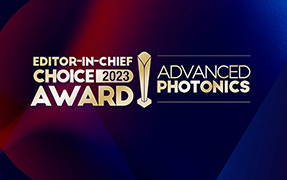SPIE continues to urge improvements to conference travel approval system for US government researchers
SPIE Newsroom
6 May 2016
Four-year-old restrictions on travel to conferences by US government scientists are slowly being eased, but SPIE and other scientific societies continue to advocate for constituents employed by the federal government.
An article in the Washington Post today (6 May) details the four-year campaign by government researchers, led by SPIE Fellow Joseph N. Mait, chief scientist at the US Army Research Lab in Maryland, to have the restrictions lifted.
 While the effort has had some success — the National Institutes of Health and Department of Energy have eased the way for scientists to resume presenting research to their peers, and the US Secretary of Defense has appealed for snipping the red tape and lifting spending caps — Jennifer Douris, government affairs director for SPIE, told the newpaper that "The reforms are patchy, and they're not consistent."
While the effort has had some success — the National Institutes of Health and Department of Energy have eased the way for scientists to resume presenting research to their peers, and the US Secretary of Defense has appealed for snipping the red tape and lifting spending caps — Jennifer Douris, government affairs director for SPIE, told the newpaper that "The reforms are patchy, and they're not consistent."
Mait, noting the importance of in-person collaboration for the advancement of science and technology, said conference attendance and travel is now limited to a quarter of his staff, about half the number that went before the new rules took effect. He told the newspaper that now he has to submit every request for legal and budgetary review, explaining the benefit to the Army.
The Army is a recognized leader in rotorcraft technology for flight simulation, he said, but few scientists can attend scientific conferences on this area of research.
"The Army is imposing a limit, and the leader in rotorcraft technology can't present its work," Mait said.
The travel restrictions are impacting morale, limiting professional development, and putting national security at risk, Mait and other researchers have maintained.
"The inability to travel to technical conferences both in the US and abroad diminishes the researcher's ability to learn about the latest developments and update or learn new skills," SPIE CEO Eugene Arthurs told a gathering of scientists in 2014. "Reducing access by governmental employees to emerging research and connections with the academic and industrial science and technology communities hinders scientific discovery, as government science has always been vital for photonics innovation."
More information



